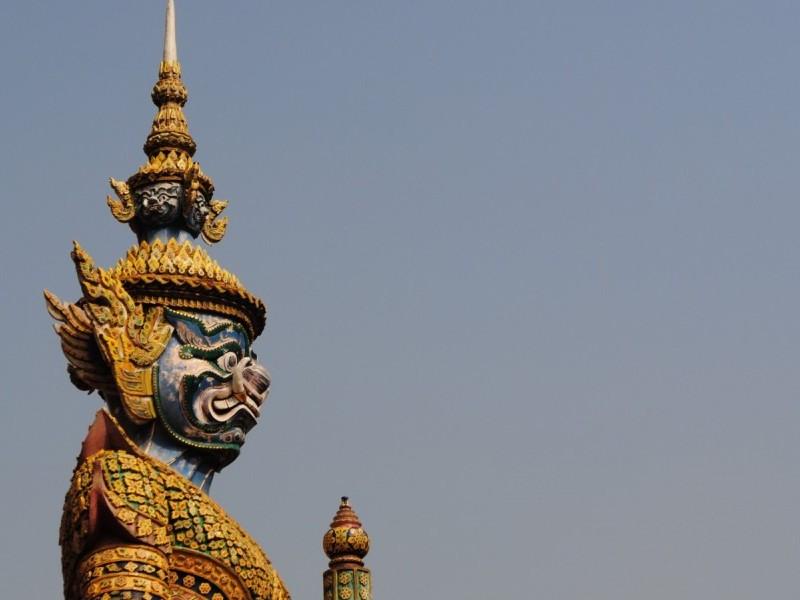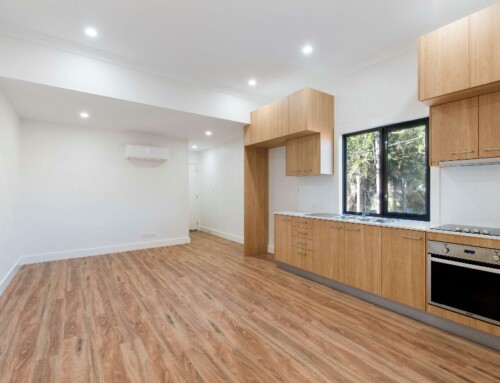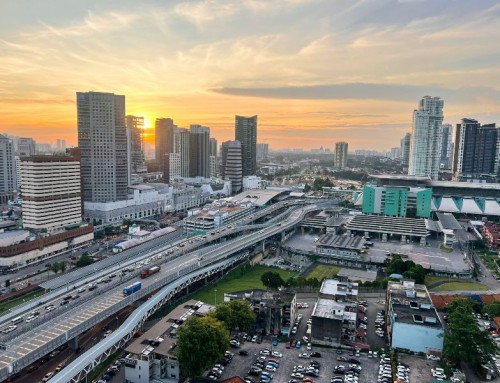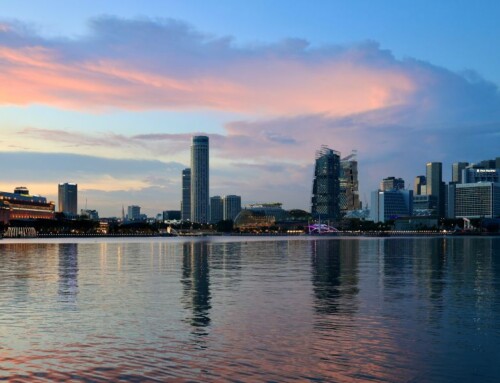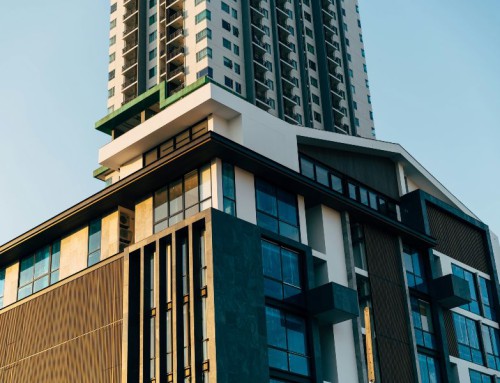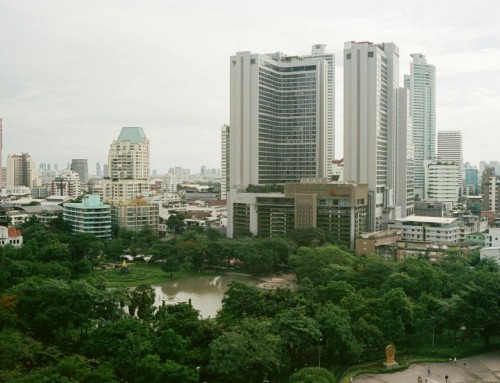With global stock markets in turmoil, the focus has shifted back to investing in real estate. Real estate does serve as a good wealth accumulator over time and thus in times like now, investors do see this as a more secure investment as compared to investing in companies via the stock market. This then conjures up an interesting point. If one were to invest in a country, what would be the factors to take into consideration before committing? I am making a compelling case for investors to consider Thailand and in particular Bangkok to add to their property portfolio.
1) Demographics
This is, in my opinion, should be one of the most important factors to consider when investing in a particular place. Factors to consider would be the overall age of the population and the literacy rate. If the population is rather young, i.e. the median age of the population is low, then the growth potential would be much greater than a place with an ageing population. An ageing population places great stress on society. Government funds have to be channelled towards taking care of people in their old age, nursing homes have to be built, more palliative care facilities set up and health care subsidies take up a sizable chunk of the governments budget. On the flip side, a young population tends to be vibrant and can contribute to the economy of the country. Take for instance during the 80s when globalization fever was taking hold in Asia. Governments could encourage students to enter fields like engineering which proved to be one of the main drivers of growth for countries like Singapore. A young population is also more accepting of new ideas and is generally more innovative. Literacy rate (Ability to read and write after the age of 15) is also important. The more educated the population the higher the productivity as they can do higher value jobs. Incomes then tend to be higher and thus when these young, educated workers decide to purchase a property, they have the ability to do so. The literacy rate in Thailand stands at 96.7%. As it stands Singapore has a literacy rate of 96.8%. In contrast, Thailand’s neighbours Cambodia and Vietnam have a literacy rate of 77.2% and 94.5% respectively. The global literacy rate stands at 86.3%.
2) Stability of the government
The ability of the ruling government to stay in power plays a large role in whether policies which were set out do bear fruit. A government sets the policies and if it remains in power then these policies can be properly implemented. This is one of the reasons why when there is a political turmoil in the country, investors tend to withdraw investments in that country. They are worried that the policies that were once implemented from the previous regime will not be followed through with the next regime. We can apply this theory to what is happening in Malaysia where embattled prime minister Najib Razak is facing corruption allegations versus countries like Singapore and China whereby the ruling parties have remained in power for an extended period of time. Malaysia is not a popular place to invest for fear that there will be a change in the ruling party. Property investment in Malaysia is anemic at best and stock markets are perhaps tracking global markets and trending downwards. Thailand has seen very unstable political regimes in the years that have just past. However the worst would seem to be over and in a recent poll, Thais were generally accepting of the current military rule and understood that this was necessary for returning Thailand to its framework of a constitutional monarchy. In 2015 foreign investment in Thailand dropped drastically and many attributed it to the military rule. However it would be wise to take note that Japan has been traditionally the largest investor in Thailand and they did not contribute as much as before in 2015 but this is also due to the fact that their own economy is faltering and the Yen is weakening at a very alarming rate. This would mean that investing in Thailand would be much higher due to their exchange rate loss. Investment from China did not see a significant fall in 2015 even with the military government in power and is expected to increase further in 2016 and beyond.
3) Infrastructure
The infrastructure of a country can determine the pace of which a property investment can be realised. Proper infrastructure such as roads, railways, efficient public transport, well-run police and support services are essential in attracting large multinational corporations (MNCs) into a country. To build this infrastructure it will take a very long period of time, probably decades. At times it would require displacing residents to make way for such infrastructure. Thus unless the investor is looking at a very long investment horizon, it would perhaps be wise to look at the current infrastructure already on hand and what are the improvements slated to be realised in the near future. Bangkok has a very strong rail network that spans across the capital. It serves as a very efficient form of transport through its notoriously congested roads. It also has two fully functioning international airports to handle the huge influx of international visitors it receives every year. In terms of attracting immediate direct foreign investment, Bangkok cannot be better placed. It has the right infrastructure, ample high end office space at affordable rents and a very welcoming stance to foreigners and their business in general.
4) Tax structure
A competitive tax structure is required to encourage foreign investment especially when buying property. This not only makes the initial cost of property acquisition lower, it also helps to open up to a larger pool of potential buyers when the property is placed on the market to be resold. Currently there are countries whereby the governments have tried to cool a seemingly overheated property market through the implementation of certain taxes. For example, in Singapore, when a foreigner wants to purchase a property, he has to pay an additional buyer’s stamp duty of 15% on top of the initial 3% stamp duty that is already levied on every buyer for a property purchase. This causes additional costs and in a country like Singapore where property prices are already prohibitively higher as compared to its neighbouring countries, the additional taxes are a deterrence to foreign investors. A competitive income tax structure is also important so not to erode the earnings from potential rental income from the property investment. On top of that taxes when a property is sold such as capital gains tax should be low or close to non existent to encourage foreign investment. This is perhaps where Thailand seems to excel. Transfer fees cost 2% and are usually shared between the buyers and the sellers, annual rental value is taxed at 12.5%, if a property is sold within the first 5 years the tax payable is 3.3% of the sale price and if the property is sold after 5 years the tax payable is a mere 0.5%of the sale price. This competitive tax structure coupled with the comparatively low entry price point makes it attractive for foreigners to enter the Thai property market.
5) Legal structure
The law of a country has to make it legal for foreigners to purchase property. The title should be clean and properly registered and free of encumbrances. There are countries like Vietnam which require foreigners to register a company to hold the property as foreigners are barred from holding most forms of properties in their own name. In Indonesia foreigners have to make purchases with an Indonesian national who will then revoke his rights to the property to the foreigner. In Bangkok foreigners can purchase condominiums. There is a restriction that the total strata area of a condominium that is held by foreigners cannot exceed 49%. This ratio means that as a foreigner you can always sell your property to another foreigner or a local. Contracts are written in Thai and usually a translated copy in English is provided. In Thailand it is very easy to find a lawyer that can converse fluently in English to explain contracts that are written in Thai to you. The price for hiring a lawyer in Thailand is also very affordable.
6) Relationship with the rest of the world
It would be important to know where a country stands with the major global economies in the world. This can be an accurate barometer of where its economy should be heading in the years ahead. Singapore did well to firm up free trade agreements (FTAs) which facilitated a boom in its economy. Other open economies like Hong Kong have benefited from such open acceptance to working with outsiders as well. It would be important to take note of ASEAN’s inter-connectivity and cooperation as a trading bloc and its acceptance to embrace the growth of China as a major trading partner. Bangkok is right in the middle of the Pan-Asia Railway Network. This is a network of railways being planned or constructed what would connect China, Singapore and all the countries of mainland Southeast Asia. This rail network would further facilitate Bangkok’s trade with China and Singapore. Geographically Bangkok is right in the middle of this major trading line and the Chinese economy is slated to grow and perhaps overtake the US as the world’s largest economy in the near distant future.
Please note that these points constitute a strong case for investing in properties in Thailand, namely Bangkok. When investing in a particular project, factors to consider would be the location of the property, the developer and price that is on offer.
Yours Sincerely,
Useful articles for people looking to invest in Thailand properties
The good locations for property investment in Bangkok (2023 update)
Guide to buying a property in Thailand
Things to take note when investing in an overseas property
Thailand as a retirement destination
